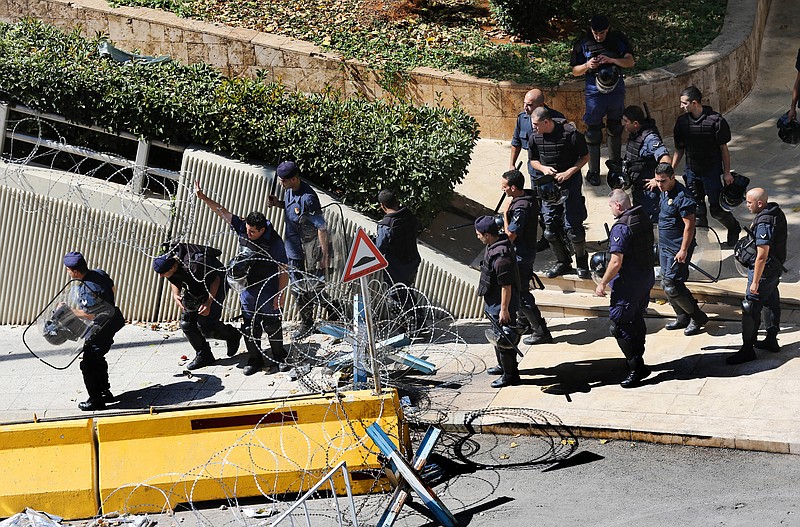BEIRUT (AP) - The London-based rights group Amnesty International called on Lebanese authorities Saturday to investigate allegations that security forces have used excessive force to disperse rallies, ahead of a major one planned to protest government corruption and the country's dysfunctional power-sharing political system.
There were concerns the rally planned in Beirut for later Saturday would also descend into clashes. Hundreds of people had begun gathering in downtown Beirut, many of them in white T-shirts that read "You Stink," the name of the main activist group behind the protests.
The government said a joint security-military operation room was set up to prevent chaos.
The protests originally started over garbage piling up in the streets of Beirut, following the closure of a main landfill. But the government's failure to resolve the crisis has evolved into wider protests against a political class that has dominated Lebanon since the end of the country's civil war in 1990.
Two rallies last weekend outside the prime minister's office drew up to 20,000 people and were generally peaceful. But the rallies descended into violent clashes after authorities used water cannons, then tear gas, to disperse protesters as they approached the prime minister's office and the parliament.
Amnesty said security forces fired live rounds, used rubber bullets and hurled stones or beat protesters, leaving 59 people hospitalized. It called on security forces to refrain from using "unnecessary or excessive" force during Saturday's protest.
"Everyone in Lebanon has the right to peaceful assembly. Lebanese officials must uphold this right and send a clear message to security personnel that such attacks against peaceful protesters will not be tolerated," said Lama Fakih, senior crisis adviser at Amnesty International.
In an interview with The Associated Press, Interior Minister Nohad Machnouk acknowledged there were "mistakes" that led to the excessive use of force and said an investigation was under way. Officials say more than 100 security personnel were also injured.
Reflecting concern over renewed clashes, the rally organizers from "You Stink" said they are deploying 500 volunteers to coordinate with security forces and prevent violence. The rally Saturday is being held at a major square further away from the government buildings.
Assaad Thebian, a movement organizer, said his group wants to avoid any attempts to spoil their peaceful anti-government rally. They worry politicians would seek to hijack their protest, further entrenching the political establishment they are protesting against.
The campaigners say they seek to end the patronage system that divvies up power among Lebanon's multiple communities - Shiites, Sunnis, Christians, Druze and more. That system has been the center of Lebanese politics for decades and helped fuel the 15-year civil war.
"We warn every politician trying to create chaos by opening a battle in one square that it will fire back at you," Thebian wrote on his Twitter account.
